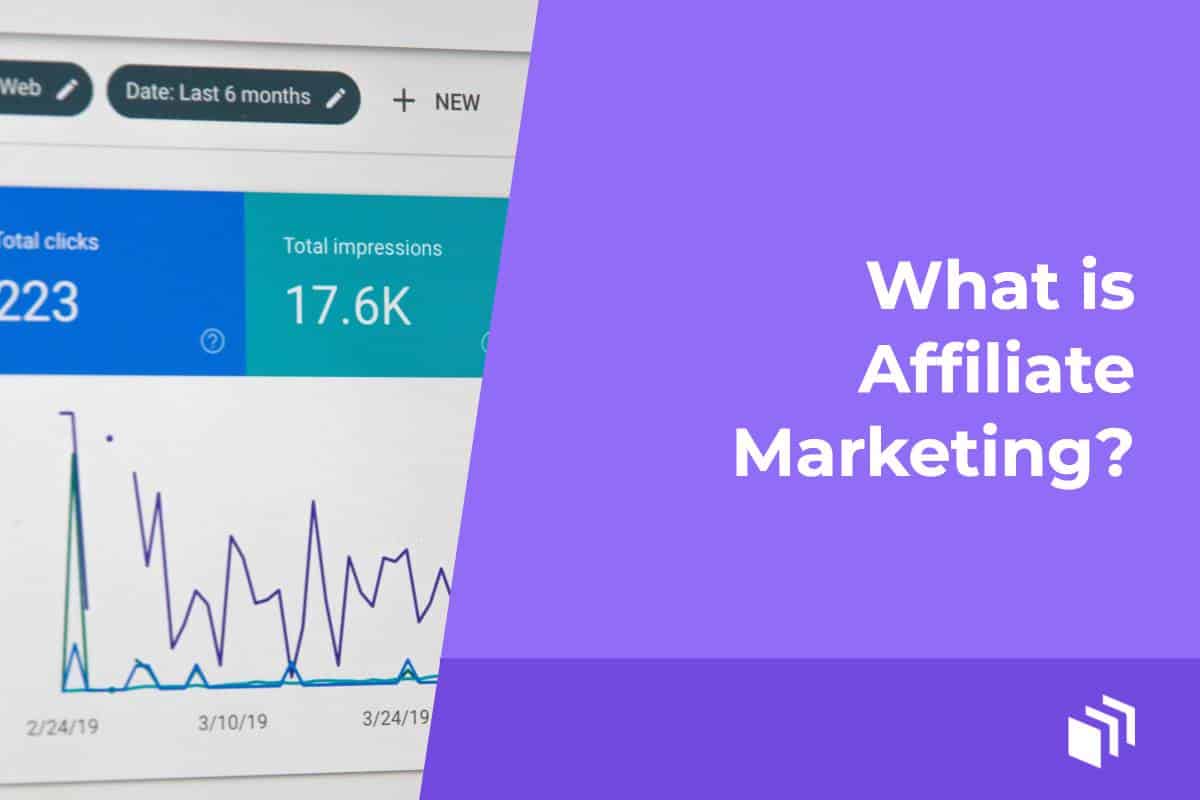What is Affiliate Marketing?

Affiliate marketing has been around far longer than the internet, but the internet transformed it into a billion-dollar industry.
The concept is simple. A company will compensate for the business generated from the marketing tactics of the affiliate.
With the aid of analytics and cookies, any company running an affiliate marketing program can track the links that bring in leads and see how many convert to sales. Equally, any affiliate can easily quantify their marketing efforts and adjust their approach to yield the best results.
The pros and cons of affiliate marketing
Affiliate marketing is a relatively low-cost and low-risk way to advertise products and services. For advertisers, it will increase brand awareness and expand to new markets.
The analytical data made possible by digital marketing makes the process of being an affiliate easier and more efficient than ever. However, it is important to understand the advantages and disadvantages before deciding whether affiliate marketing is right for you.
One of the main considerations as an affiliate marketer is that the cost of advertising will fall on your shoulders. That is because the company whose products/services are advertised will only pay on traffic that converts to sales.
The advertising company is also likely to set the terms of the affiliate relationship and stringently monitor the affiliate. This is unfortunately due to the potential for fraud on the part of the affiliate using a variety of tactics like using misspelled domain names to redirect traffic or populating online forms with stolen information.
On the other hand, possibly the greatest benefit of affiliate marketing is that you can start with minimal investment.
If you already generate high levels of traffic either by blogging, social media, or another format, you can use this access to the community to qualify yourself as a solid affiliate candidate. That is because you can provide something that paid adverts can’t. Localized and personalized promotion.
How to Start as An Affiliate
To become an affiliate marketer and leverage the traffic you are generating, you need to consider what platform you will use to promote products and services, and how you will position yourself as an affiliate.
There are effectively three types of affiliate marketing:
- Unattached – The affiliate has no connection to the product or service.
- Related – The affiliate has a niche connection and influence in the product realm.
- Involved – The affiliate has or is currently using the product, sharing their experience as an advertisement.
Blogs have been and continue to be the most effective channel to advertise and promote an affiliate product.
Blogging has changed significantly since its inception and the initial boom in “bloggers”. Now, most businesses will (and should) invest in their company website blog sections. So while you may not consider yourself a “blogger” that is no reason not to explore affiliate marketing. It allows you to serve as an expert and share your opinion about certain products and/or services that can, and likely will, benefit your audience.
The key to more successful affiliate marketing is to find a specific category or niche that you are interested in, making you a “related” or “involved” affiliate marketer. This will help you attract a more dedicated consumer base and you can focus on delving deep into your specialty subject.
Next, you should research affiliate programs that suit your niche and requirements. That could be earning high commissions or generating more traffic.
Affiliate marketers are paid a commission for referring customers to companies where they will make a purchase. The commission amount will depend on the product and the level of referral volume, but you can generally expect anything from less than 1% to 20% or more.
Leveraging your site
The key to a successful blog is creating content that will solve a problem your visitor is having.
Assuming you have followed the example set above—you have an eager and captive niche audience—you aim to share your experiences and views on the products you are marketing.
The simplest way to do this is by adding links within blog content, but your website has far more real estate you can use to do the job better.
Use ads to generate traffic
Placing ads strategically throughout your site can function as the ideal complement to your blog content. The trick is to remember that it should not overwhelm your visitor with a visual hard-sell but instead support the narrative of your blog content with carefully positioned ads.
For example, your blog can be discussing the merits of a particular primary product in relation to secondary products that you can advertise on the site page. This is where AdSanity can be leveraged on your WordPress site to help you tie into your affiliate programs.
Supporting your affiliate marketing efforts with advertising is what will maintain your high traffic levels and thus aid in your success as an affiliate.
Organic Search
If you are taking the content focused approach in your affiliate marketing strategy, you will be happy to hear that according to BrightEdge, organic search now has on average a 53% traffic share across all industries. And if you were thinking that paid search would do well, it only accounts for 15%.
As a content creator, SEO best practices are important, but as an affiliate marketer they are proving to be essential. You could be squandering opportunities by not investing time in keyword research and optimizing your content.
Mobile Traffic
We are now seeing significant growth in mobile affiliate traffic, with IAB UK reporting a 49% increase in spending on a year-on-year basis. Ensuring that your WordPress website is mobile-optimized can play a pivotal role in generating sales.
When choosing an affiliate program, you should consider how much of the merchant’s traffic comes from mobile devices. If you have invested in optimizing your site for mobile use, you can leverage this to your advantage.
Become an Affiliate for AdSanity
At AdSanity, we believe in, value, and trust our WordPress community. They have been instrumental to our growth and development over the past 11 years. Whether you’re a blogger, publisher, or developer, we have the incentives you need to kick-start your affiliate marketing journey.
We decided to go against the norm of starting out with tiny incentives and we have recently expanded our offering to make becoming an affiliate more enticing than ever before.
As we mentioned earlier, affiliate marketing is all about growth – starting out with smaller incentives and increasing them as you gain experience. Our program is no different, except that you start off with a much higher percentage than most.
When you sign up for the AdSanity affiliate program, you will immediately receive 10% of the subscription price for each sale made using your affiliate link. From here we have a tiered system that grows with your marketing efforts.
- Tier 1 – Sign up for the Affiliate Program: 10% of the transaction
- Tier 2 – After 25 sales: 15% of the transaction + an AdSanity Pop socket
- Tier 3 – After 50 sales: 20% of the transaction + an AdSanity Mug
- Tier 4 – After 100 sales: 25% of the transaction + an AdSanity T-shirt
- Tier 5 – After 200 sales: 30% of the transaction + an AdSanity Hat
- Tier 6 – After 400 sales: 35% of the transaction + an AdSanity Hoodie
- Tier 7 – After 800 sales: 40% of the transaction + an iPad!!!
If you’re interested in becoming part of the AdSanity family, signing up is fast and easy, and you can get started right away by logging into the site.
Don’t let (a lack of) experience be a barrier
The most important thing you can do when starting as an affiliate is to keep your focus on the long term. While it is unlikely that you will start receiving big enough cheques to ditch your day job, you could reach that point faster than you thought.
Of course, it will depend on the product or service you are selling, your online reach, your traffic, and your influence. But generally, the more time invested in your efforts, the better the results you yield.
Ready to get started?
Time to take control of your ads.
Find your perfect plan and go for it.
Ready to Make Money With Your Site?
Get ads on your site in
60 minutes or less
with AdSanity.
With our 14-day money back guarantee, it’s easy to see if AdSanity is the right fit for you.
Tags
Popular Pro Add-Ons
Our Community
Join our mailing list to keep up to date on everything happening with AdSanity and Pixel Jar.
Note: Your email address will be added to our CRM and be used to receive emails from Pixel Jar. You can unsubscribe at any time.



